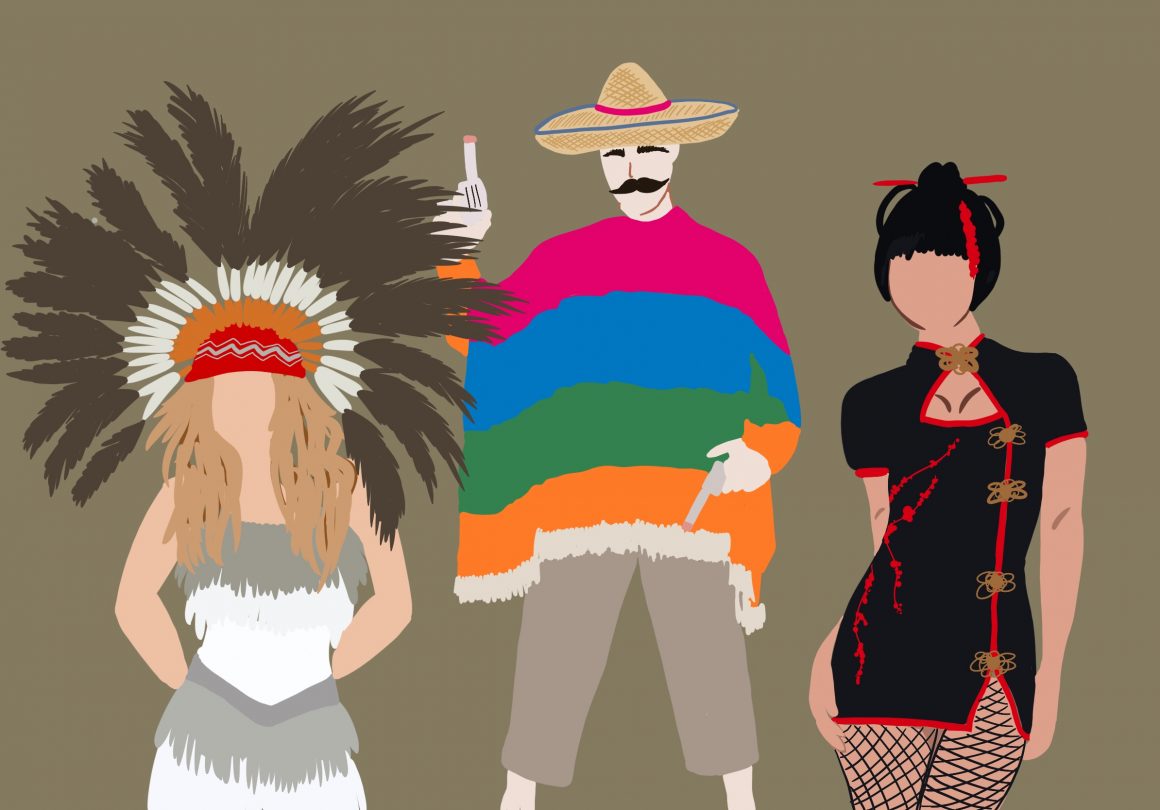
Cultural appropriation vs cultural appreciation: Halloween edition
By Jenzelle Salazar, October 29 2021—
With Halloween fast approaching, you may have already begun to decide on what kind of Halloween costumes you may want to wear this year.
Dressing up has been around for as long as Halloween itself and is supposed to be a harmless and amusing tradition. But unfortunately, for many marginalized groups of people, this has not always been the case — many costumes come at the expense of their cultural heritage.
In recent years, you may have heard the phrase “my culture is not your costume” going around social media as a result of many people of colour speaking out on the use of their cultural clothing and symbols during Halloween. Specifically, the notion of cultural appropriation has arisen and references the exploitation of minority cultures and their cultural garb without factoring in their socio-historical significance. Those engaged in the practice, however, say that they are simply appreciating other cultures on Halloween and are quick to defend their choices. The question of what is considered cultural appreciation vs cultural appropriation is being brought to light through conversations as to why this topic is so controversial and how it continues to remain relevant in society today.
For starters, it’s important to address what these concepts actually mean. The appreciation of a culture demonstrates a degree of respect, as well as the act of wanting to learn and further your understanding about its peoples and traditions. Appreciation indicates a willingness to broaden your perspectives rather than reducing a culture down to offensive caricatures and stereotypes — for instance, Justin Trudeau wearing brownface at an Arabian Nights costume party in 2001 is not an appreciation of Arabs. It is more in line with appropriation or the exploitation of a certain aspect of one’s culture and exploiting it for your own personal benefit or interest.
To put it simply, the decision to sport an Indigenous traditional headdress as a non-Indigenous person, or the act of dressing up as a “sexy” Geisha costume that you found at Party City is inherently more offensive than you put it out to be. This is because these inaccurate and stereotypical portrayals reduce traditional fashion down to being viewed as an “exotic” commodity, removing their original and cultural meanings in the eyes of society.
The issue of culturally insensitive costumes has oftentimes been undermined and boiled down as a “sensitivity” issue. However, this idea further reinforces the lack of recognition regarding the harmfulness of stereotypical and insensitive portrayals of different cultures. Costumes based on tropes and stereotypes have posed concerns of fear-mongering, villainizing, fetishizing and demeaning certain cultural groups. This is a real issue that demands recognition and should be used as an opportunity to validate the experiences that marginalized people regularly have to go through.
There is a stark difference between wearing a costume in a respectful and appropriate manner in comparison to one that is just straight-up offensive. The reality is that costume companies profit off of selling costumes based on traditional, sacred or modest wear and, due to ignorance, people fall for it all the time. A person’s identity requires years of self-discovery in order to nurture and develop. This is exactly the reason why wearing someone else’s cultural dress as a meaningless costume for a night of dress-up is so degrading. It’s because one’s identity should not be seen or used as a form of cheap entertainment.
Remember that offensive caricatures perpetuate and stigmatize groups of vulnerable and racialized people. Certain elements and traditional dress represent beauty and sacredness, as do traditional garments and symbols that hold cultural importance. Inaccurate cultural depictions continue to twist mainstream perceptions of cultures that are still prevalent in society today.
If you are planning to celebrate Halloween this year, try using this celebration as an opportunity to be mindful of what your costume portrays or says about you. It may not seem like a big deal, but the act of undermining this issue is inherently a personal privilege that you get to enjoy to somebody else’s extent. By opening up the possibility of educating others through conversation and example, it can instead help to end the issue of culturally appropriated costumes once and for all.
This article is a part of our Voices section.
